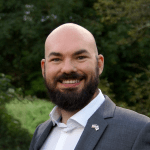 David M. Allison is a Stanton Nuclear Security Fellow with the Project on Managing the Atom and the International Security Program at the Belfer Center for Science and International Affairs, Harvard Kennedy School. Dave’s work draws on experimental and archival methods to examine the foundations of nuclear deterrence and threats to strategic stability. He has conducted research in Iraq, Japan, South Korea, and the United States, and has published in the Bulletin of the Atomic Scientists, International Security, the Journal of Conflict Resolution, The Nonproliferation Review, and The National Interest. Dave is a member of the 2023 Mid-Career Cadre with the Center for Strategic and International Studies’ Project on Nuclear Issues and a fellow of the Yale Nuclear Security Program. Prior to academia, Dave served as an officer in the United States Army. He holds a Ph.D. and M.A. in Political Science from Yale University and a B.A. with highest honors in Political Science from Columbia University.
David M. Allison is a Stanton Nuclear Security Fellow with the Project on Managing the Atom and the International Security Program at the Belfer Center for Science and International Affairs, Harvard Kennedy School. Dave’s work draws on experimental and archival methods to examine the foundations of nuclear deterrence and threats to strategic stability. He has conducted research in Iraq, Japan, South Korea, and the United States, and has published in the Bulletin of the Atomic Scientists, International Security, the Journal of Conflict Resolution, The Nonproliferation Review, and The National Interest. Dave is a member of the 2023 Mid-Career Cadre with the Center for Strategic and International Studies’ Project on Nuclear Issues and a fellow of the Yale Nuclear Security Program. Prior to academia, Dave served as an officer in the United States Army. He holds a Ph.D. and M.A. in Political Science from Yale University and a B.A. with highest honors in Political Science from Columbia University.
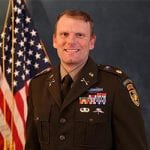 Kyle Atwell is an active duty US Army officer, an instructor in the Social Sciences Department at West Point, and a doctoral candidate in security studies at the Princeton School of Public and International Affairs. His operational experience includes assignments in North and West Africa, Afghanistan, South Korea, and Germany. He has also held positions at NATO Headquarters in Brussels and the United States Mission to the United Nations, and worked for two California state legislators. Kyle is currently a Nonresident Senior Fellow in the Forward Defense practice of the Atlantic Council’s Scowcroft Center for Strategy and Security and a Council on Foreign Relations term member. He is a former Center for a New American Security Shawn Brimley Next Generation National Security Leaders fellow as well as a fellow at the Princeton Center for International Security Studies. Kyle received bachelor of arts degrees in economics and international relations from the University of California at Davis and a master of arts in public affairs from Princeton University.
Kyle Atwell is an active duty US Army officer, an instructor in the Social Sciences Department at West Point, and a doctoral candidate in security studies at the Princeton School of Public and International Affairs. His operational experience includes assignments in North and West Africa, Afghanistan, South Korea, and Germany. He has also held positions at NATO Headquarters in Brussels and the United States Mission to the United Nations, and worked for two California state legislators. Kyle is currently a Nonresident Senior Fellow in the Forward Defense practice of the Atlantic Council’s Scowcroft Center for Strategy and Security and a Council on Foreign Relations term member. He is a former Center for a New American Security Shawn Brimley Next Generation National Security Leaders fellow as well as a fellow at the Princeton Center for International Security Studies. Kyle received bachelor of arts degrees in economics and international relations from the University of California at Davis and a master of arts in public affairs from Princeton University.
 Fritz Bartel is an Assistant Professor of International Affairs at the George H.W. Bush School of Government and Public Service at Texas A&M University. His book, The Triumph of Broken Promises: The End of the Cold War and the Rise of Neoliberalism, was published with Harvard University Press in 2022. As a dissertation, it won the 2018 Oxford University Press USA Dissertation Prize in International History from the Society for Historians of American Foreign Relations (SHAFR). Along with Nuno P. Monteiro, he also co–edited Before and After the Fall: World Politics and the End of the Cold War (Cambridge University Press, 2021). His work has been published in Enterprise & Society and Diplomatic History, and his research has been funded by the German Academic Exchange Service (DAAD) and the Miller Center. He received his PhD in history from Cornell University, and a B.A. from the University of Toronto.
Fritz Bartel is an Assistant Professor of International Affairs at the George H.W. Bush School of Government and Public Service at Texas A&M University. His book, The Triumph of Broken Promises: The End of the Cold War and the Rise of Neoliberalism, was published with Harvard University Press in 2022. As a dissertation, it won the 2018 Oxford University Press USA Dissertation Prize in International History from the Society for Historians of American Foreign Relations (SHAFR). Along with Nuno P. Monteiro, he also co–edited Before and After the Fall: World Politics and the End of the Cold War (Cambridge University Press, 2021). His work has been published in Enterprise & Society and Diplomatic History, and his research has been funded by the German Academic Exchange Service (DAAD) and the Miller Center. He received his PhD in history from Cornell University, and a B.A. from the University of Toronto.
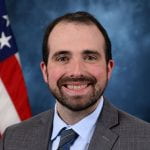 Tyler Bowen is the Stanton Visiting Scientist at the United States Air Force Academy. His research agenda focuses broadly on the ways in which nuclear weapons affect international politics. His book project, Integrated Escalation: The Benefits of Conventional Military Superiority in the Nuclear Age, examines how nuclear weapons affect the utility of conventional military superiority, arguing that having several conventional options for escalation provides nuclear states with a bargaining advantage in nuclear crises. He also researches how nuclear weapons affect public attitudes towards the use of force. His research has been published in The Journal of Politics and is forthcoming in an edited volume from MIT Press. He received his Ph.D. in Political Science from Yale in 2021 and spent a year as a postdoctoral fellow at the Kissinger Center at Johns Hopkins SAIS.
Tyler Bowen is the Stanton Visiting Scientist at the United States Air Force Academy. His research agenda focuses broadly on the ways in which nuclear weapons affect international politics. His book project, Integrated Escalation: The Benefits of Conventional Military Superiority in the Nuclear Age, examines how nuclear weapons affect the utility of conventional military superiority, arguing that having several conventional options for escalation provides nuclear states with a bargaining advantage in nuclear crises. He also researches how nuclear weapons affect public attitudes towards the use of force. His research has been published in The Journal of Politics and is forthcoming in an edited volume from MIT Press. He received his Ph.D. in Political Science from Yale in 2021 and spent a year as a postdoctoral fellow at the Kissinger Center at Johns Hopkins SAIS.
 Målfrid Braut-Hegghammer is Professor of Political Science at the University of Oslo, and the founding director of the Oslo Nuclear Project. She has previously been a Junior Faculty Fellow at CISAC, Stanford University (2012-13), and a pre- and post-doctoral fellow at the Belfer Center, Harvard University (2008-10). She received her doctoral degree from London School of Economics in 2010, which received the Michael Nicholson Thesis Prize from BISA the following year. She published Unclear Physics: Why Iraq and Libya Failed to Build Nuclear Weapons (Cornell University Press, 2016) based on her dissertation research and has two forthcoming book manuscripts focusing on the origins of the 2003 invasion of Iraq and nuclear incidents in the high north region. Her work has been published in numerous outlets including International Security, The Middle East Journal, the New York Times (online), International Herald Tribune, Monkey Cage and War on the Rocks.
Målfrid Braut-Hegghammer is Professor of Political Science at the University of Oslo, and the founding director of the Oslo Nuclear Project. She has previously been a Junior Faculty Fellow at CISAC, Stanford University (2012-13), and a pre- and post-doctoral fellow at the Belfer Center, Harvard University (2008-10). She received her doctoral degree from London School of Economics in 2010, which received the Michael Nicholson Thesis Prize from BISA the following year. She published Unclear Physics: Why Iraq and Libya Failed to Build Nuclear Weapons (Cornell University Press, 2016) based on her dissertation research and has two forthcoming book manuscripts focusing on the origins of the 2003 invasion of Iraq and nuclear incidents in the high north region. Her work has been published in numerous outlets including International Security, The Middle East Journal, the New York Times (online), International Herald Tribune, Monkey Cage and War on the Rocks.
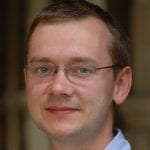 James Cameron is a Postdoctoral Fellow in the Department of Political Science at the University of Oslo, where he is a member of the Oslo Nuclear Project. His research focuses on the history of arms control from the nineteenth century to the present and the lessons it holds for contemporary policy. He is the author of The Double Game: The Demise of America’s First Missile Defense System and the Rise of Strategic Arms Limitation (Oxford University Press, 2018). He holds a PhD and BA in History from the University of Cambridge and an MPhil in Russian and East European Studies from the University of Oxford.
James Cameron is a Postdoctoral Fellow in the Department of Political Science at the University of Oslo, where he is a member of the Oslo Nuclear Project. His research focuses on the history of arms control from the nineteenth century to the present and the lessons it holds for contemporary policy. He is the author of The Double Game: The Demise of America’s First Missile Defense System and the Rise of Strategic Arms Limitation (Oxford University Press, 2018). He holds a PhD and BA in History from the University of Cambridge and an MPhil in Russian and East European Studies from the University of Oxford.
Erica Carere is the Program Officer for the Stanton Foundation’s International and Nuclear Security Program (https://thestantonfoundation.org/). The Foundation was created by Dr. Frank Stanton, former President of CBS, and it supports areas where he was unable to complete his charitable intentions during his lifetime. As Program Officer, Erica manages about $10M in nuclear security grants annually, both in the US and abroad. The nuclear security programs include fellowships, seminars, courses, and general research. Prior to joining the Foundation, Erica worked as an economic consultant for the Brattle Group. She graduated with a BS in Mechanical Engineering from Yale University and a MS in Technology and Policy from MIT. She lives in Belmont, MA with her husband and five children.
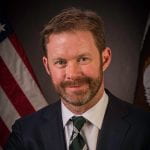 Jonathan D. Caverley is Professor in the Strategic & Operational Research Department of the Naval War College’s Center for Naval Warfare Studies, where he served as the inaugural director of the Bernard Brodie Strategy Group from 2020 to 2022. He is currently examining how states use arms arms transfers and training of foreign militaries as tools of influence. He also studies how factors such as gender, military status, and expertise allow elites to identify threats and mobilize defense efforts. Finally, he studies great power maritime competition and crisis stability in the Western Pacific.
Jonathan D. Caverley is Professor in the Strategic & Operational Research Department of the Naval War College’s Center for Naval Warfare Studies, where he served as the inaugural director of the Bernard Brodie Strategy Group from 2020 to 2022. He is currently examining how states use arms arms transfers and training of foreign militaries as tools of influence. He also studies how factors such as gender, military status, and expertise allow elites to identify threats and mobilize defense efforts. Finally, he studies great power maritime competition and crisis stability in the Western Pacific.
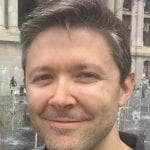 Andrew J. Coe is Assistant Professor of Political Science and Director of the Laboratory for Research on Conflict and Collective Action at Vanderbilt University. He studies the politics of the spread of nuclear weapons, the relationships among instruments of foreign policy, and the political economy of war. He is currently working on a book project on economic origins of war and peace. He was previously a Stanton Nuclear Security Fellow at the Council on Foreign Relations and a member of the research staff at the Institute for Defense Analyses.
Andrew J. Coe is Assistant Professor of Political Science and Director of the Laboratory for Research on Conflict and Collective Action at Vanderbilt University. He studies the politics of the spread of nuclear weapons, the relationships among instruments of foreign policy, and the political economy of war. He is currently working on a book project on economic origins of war and peace. He was previously a Stanton Nuclear Security Fellow at the Council on Foreign Relations and a member of the research staff at the Institute for Defense Analyses.
 Fiona Cunningham is Assistant Professor of Political Science at the University of Pennsylvania. Her research interests lie the intersection of technology and conflict, with an empirical focus on China. Her book manuscript, China’s Search for Coercive Leverage, examines China’s distinctive approach to the dilemma of coercing an adversary under the shadow of nuclear war, which relies substitutes for nuclear threats. Her research has appeared in academic and popular outlets including International Security, Security Studies, The Washington Quarterly and The Texas National Security Review. Fiona has held fellowships at the Carnegie Endowment for International Peace, Stanford’s Center for International Security and Cooperation, and Harvard’s Belfer Center for Science and International Affairs. She conducted fieldwork in at the Renmin University of China, supported by a China Confucius Studies Program research fellowship. Her research has also been supported by the Defense Threat Reduction Agency, Asia–Pacific Foundation of Canada, Stanton Foundation, and the Smith Richardson Foundation. Fiona holds nonresident affiliations with the MIT Security Studies Program, Carnegie Endowment for International Peace, and United States Studies Centre at the University of Sydney. Previously, she was Assistant Professor of Political Science and International Affairs at the George Washington University. Fiona received her Ph.D. from the Department of Political Science at MIT in 2018.
Fiona Cunningham is Assistant Professor of Political Science at the University of Pennsylvania. Her research interests lie the intersection of technology and conflict, with an empirical focus on China. Her book manuscript, China’s Search for Coercive Leverage, examines China’s distinctive approach to the dilemma of coercing an adversary under the shadow of nuclear war, which relies substitutes for nuclear threats. Her research has appeared in academic and popular outlets including International Security, Security Studies, The Washington Quarterly and The Texas National Security Review. Fiona has held fellowships at the Carnegie Endowment for International Peace, Stanford’s Center for International Security and Cooperation, and Harvard’s Belfer Center for Science and International Affairs. She conducted fieldwork in at the Renmin University of China, supported by a China Confucius Studies Program research fellowship. Her research has also been supported by the Defense Threat Reduction Agency, Asia–Pacific Foundation of Canada, Stanton Foundation, and the Smith Richardson Foundation. Fiona holds nonresident affiliations with the MIT Security Studies Program, Carnegie Endowment for International Peace, and United States Studies Centre at the University of Sydney. Previously, she was Assistant Professor of Political Science and International Affairs at the George Washington University. Fiona received her Ph.D. from the Department of Political Science at MIT in 2018.
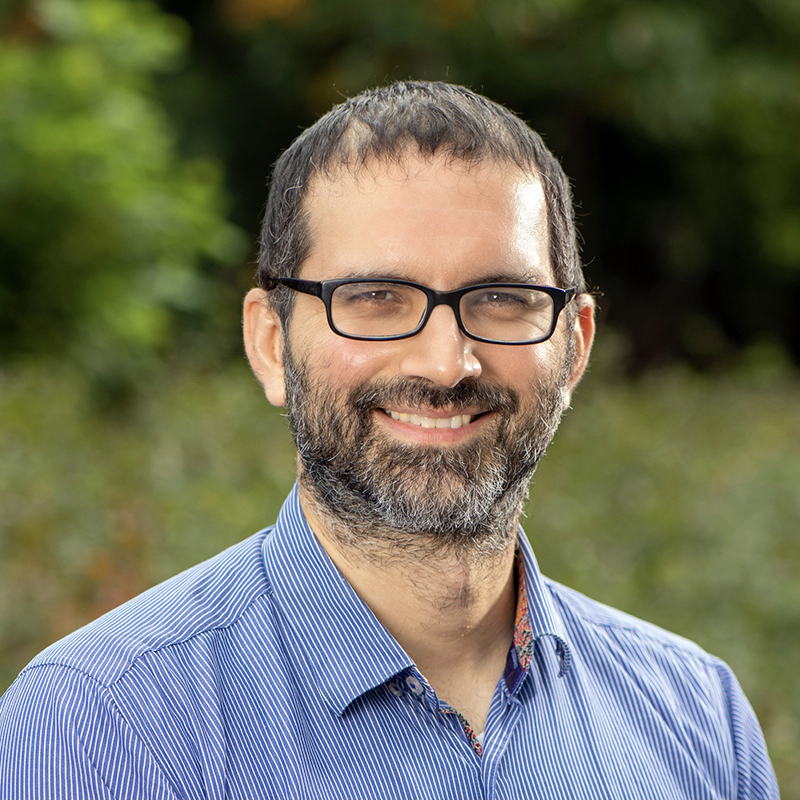 Alexandre Debs is Associate Professor and Director of Graduate Studies in the Department of Political Science at Yale University. He is also the Faculty Director of the Nuclear Security Program in International Security Studies at the Jackson School of Global Affairs at Yale University. Alexandre’s research focuses on the causes of war, nuclear proliferation, and democratization. His work has appeared in such outlets as the American Political Science Review, the American Journal of Political Science, the Journal of Politics, International Organization, and International Security. He is the author of the book Nuclear Politics: The Strategic Causes of Proliferation (with Nuno Monteiro), published by Cambridge University Press in 2017. Alexandre received a Ph.D. degree in Economics from M.I.T., an M.Phil. in Economic and Social History from the University of Oxford as a Rhodes scholar, and a B.Sc. in Economics and Mathematics from Universite de Montreal.
Alexandre Debs is Associate Professor and Director of Graduate Studies in the Department of Political Science at Yale University. He is also the Faculty Director of the Nuclear Security Program in International Security Studies at the Jackson School of Global Affairs at Yale University. Alexandre’s research focuses on the causes of war, nuclear proliferation, and democratization. His work has appeared in such outlets as the American Political Science Review, the American Journal of Political Science, the Journal of Politics, International Organization, and International Security. He is the author of the book Nuclear Politics: The Strategic Causes of Proliferation (with Nuno Monteiro), published by Cambridge University Press in 2017. Alexandre received a Ph.D. degree in Economics from M.I.T., an M.Phil. in Economic and Social History from the University of Oxford as a Rhodes scholar, and a B.Sc. in Economics and Mathematics from Universite de Montreal.
 James D. Fearon is Geballe Professor in the School of Humanities and Sciences and Professor of Political Science at Stanford University, and a Senior Fellow at Stanford’s Freeman-SpogliInstitute for International Studies. His research has focused on civil and interstate war. He has also published on international relations theory, democratization, foreign aid and institution building, and post–conflict reconstruction. Fearon is an elected member of the National Academy of Sciences (2012) and the American Academy of Arts and Sciences (2002), and a member of the Council on Foreign Relations. From 2007 to 2010 he was Chair of the Department of Political Science at Stanford. He served as a Senior Adviser in the U.S. Department of Defense in 2021 and 2022, where he worked primarily with the production and implementation team for the 2022 National Defense Strategy.
James D. Fearon is Geballe Professor in the School of Humanities and Sciences and Professor of Political Science at Stanford University, and a Senior Fellow at Stanford’s Freeman-SpogliInstitute for International Studies. His research has focused on civil and interstate war. He has also published on international relations theory, democratization, foreign aid and institution building, and post–conflict reconstruction. Fearon is an elected member of the National Academy of Sciences (2012) and the American Academy of Arts and Sciences (2002), and a member of the Council on Foreign Relations. From 2007 to 2010 he was Chair of the Department of Political Science at Stanford. He served as a Senior Adviser in the U.S. Department of Defense in 2021 and 2022, where he worked primarily with the production and implementation team for the 2022 National Defense Strategy.
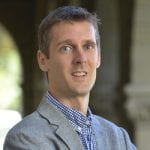 Matthew Fuhrmann is Professor of Political Science and Presidential Impact Fellow at Texas A&M University. His previous positions include Visiting Associate Professor at Stanford University’s Center for International Security and Cooperation (2016–17), Stanton Nuclear Security Fellow at the Council on Foreign Relations (2010–11), and Pre–Doctoral Research Fellow at Harvard University’s Belfer Center for Science and International Affairs (2007–08). He was named an Andrew Carnegie Fellow in 2016 by the Carnegie Corporation of New York. His research focuses on international relations, nuclear proliferation, and armed conflict. He is the author of Atomic Assistance: How “Atoms for Peace” Programs Cause Nuclear Insecurity (Cornell University Press, 2012) and the coauthor of Nuclear Weapons and Coercive Diplomacy (Cambridge University Press, 2017). His work has been published in peer reviewed journals such as American Journal of Political Science, British Journal of Political Science, International Organization, International Security, International Studies Quarterly, Journal of Conflict Resolution, Journal of Peace Research, and Journal of Politics. He has also written policy pieces for The Atlantic (online), The Washington Post’s Monkey Cage, The Christian Science Monitor, Slate, and USA Today.
Matthew Fuhrmann is Professor of Political Science and Presidential Impact Fellow at Texas A&M University. His previous positions include Visiting Associate Professor at Stanford University’s Center for International Security and Cooperation (2016–17), Stanton Nuclear Security Fellow at the Council on Foreign Relations (2010–11), and Pre–Doctoral Research Fellow at Harvard University’s Belfer Center for Science and International Affairs (2007–08). He was named an Andrew Carnegie Fellow in 2016 by the Carnegie Corporation of New York. His research focuses on international relations, nuclear proliferation, and armed conflict. He is the author of Atomic Assistance: How “Atoms for Peace” Programs Cause Nuclear Insecurity (Cornell University Press, 2012) and the coauthor of Nuclear Weapons and Coercive Diplomacy (Cambridge University Press, 2017). His work has been published in peer reviewed journals such as American Journal of Political Science, British Journal of Political Science, International Organization, International Security, International Studies Quarterly, Journal of Conflict Resolution, Journal of Peace Research, and Journal of Politics. He has also written policy pieces for The Atlantic (online), The Washington Post’s Monkey Cage, The Christian Science Monitor, Slate, and USA Today.
 Mayumi Fukushima is a Postdoctoral Research Fellow with the Project on Managing the Atom and the International Security Program at the Harvard Kennedy School’s Belfer Center for Science and International Affairs. She is currently working on three research projects on extended nuclear deterrence, asymmetric international security alliances, and nuclear nonproliferation. Her research has been published in War on the Rocks, International Affairs, The National Interest, and The American Interest, among others, and it has been supported by various organizations including the Charles Koch Foundation, the Stanton Foundation, the Smith Richardson Foundation, Massachusetts Institute of Technology’s Center for International Studies, the Murata Science Foundation, and the Ito Foundation for International Education Exchange. She was formerly a Stanton Nuclear Security Fellow with the RAND Corporation and a Smith Richardson Foundation fellow at Yale University’s International Security Studies Program. She holds Ph.D. in political science from Massachusetts Institute of Technology and was a member of MIT’s Security Studies Program. Prior to her Ph.D. training, she served as a fast–track career diplomat (deputy director) at the Japanese Ministry of Foreign Affairs for eleven years. She is fluent in English, French, and Japanese and can converse in Chinese.
Mayumi Fukushima is a Postdoctoral Research Fellow with the Project on Managing the Atom and the International Security Program at the Harvard Kennedy School’s Belfer Center for Science and International Affairs. She is currently working on three research projects on extended nuclear deterrence, asymmetric international security alliances, and nuclear nonproliferation. Her research has been published in War on the Rocks, International Affairs, The National Interest, and The American Interest, among others, and it has been supported by various organizations including the Charles Koch Foundation, the Stanton Foundation, the Smith Richardson Foundation, Massachusetts Institute of Technology’s Center for International Studies, the Murata Science Foundation, and the Ito Foundation for International Education Exchange. She was formerly a Stanton Nuclear Security Fellow with the RAND Corporation and a Smith Richardson Foundation fellow at Yale University’s International Security Studies Program. She holds Ph.D. in political science from Massachusetts Institute of Technology and was a member of MIT’s Security Studies Program. Prior to her Ph.D. training, she served as a fast–track career diplomat (deputy director) at the Japanese Ministry of Foreign Affairs for eleven years. She is fluent in English, French, and Japanese and can converse in Chinese.
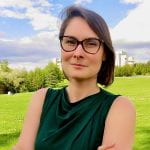 Eliza Gheorghe is an Assistant Professor in the International Relations Department at Bilkent University. She earned her doctorate in International Relations from the University of Oxford (No Corrections, 2014) and an M.A. in Security Studies from Georgetown University (Honors, 2010), on a Fulbright scholarship. She held research fellowships at the Institute for Peace Science and Security Policy at the University of Hamburg, Yale University, Harvard Kennedy School, Cornell University, SAIS–Johns Hopkins University, the Norwegian Institute for Defense Studies, and Université Paris 1 Panthéon – Sorbonne. Her research was also funded by the Woodrow Wilson International Center for Scholars, Fundação Getúlio Vargas, and the University of Vienna. She is the recipient of the International Fellowship for Outstanding Researchers (2019–2022) from the Scientific and Technological Research Council of Turkey (TÜBITAK), with her project The Globalization of the Atom: Nuclear Trade and the Spread of Atomic Weapons. In 2020, she was awarded the Outstanding Young Scientist Prize from the Turkish Academy of Sciences. Her research focuses on nuclear proliferation and the evolution of the nuclear market; questions of grand strategy and nuclear alliances; nuclear dominoes; and illicit trade and trafficking networks. Her work has been published or is forthcoming in International Security, Journal of Politics, the Chinese Journal of International Politics, International History Review, European Review of History, and Cold War History. At Bilkent, she teaches International Relations, International Security, and Nuclear Proliferation and International Politics.
Eliza Gheorghe is an Assistant Professor in the International Relations Department at Bilkent University. She earned her doctorate in International Relations from the University of Oxford (No Corrections, 2014) and an M.A. in Security Studies from Georgetown University (Honors, 2010), on a Fulbright scholarship. She held research fellowships at the Institute for Peace Science and Security Policy at the University of Hamburg, Yale University, Harvard Kennedy School, Cornell University, SAIS–Johns Hopkins University, the Norwegian Institute for Defense Studies, and Université Paris 1 Panthéon – Sorbonne. Her research was also funded by the Woodrow Wilson International Center for Scholars, Fundação Getúlio Vargas, and the University of Vienna. She is the recipient of the International Fellowship for Outstanding Researchers (2019–2022) from the Scientific and Technological Research Council of Turkey (TÜBITAK), with her project The Globalization of the Atom: Nuclear Trade and the Spread of Atomic Weapons. In 2020, she was awarded the Outstanding Young Scientist Prize from the Turkish Academy of Sciences. Her research focuses on nuclear proliferation and the evolution of the nuclear market; questions of grand strategy and nuclear alliances; nuclear dominoes; and illicit trade and trafficking networks. Her work has been published or is forthcoming in International Security, Journal of Politics, the Chinese Journal of International Politics, International History Review, European Review of History, and Cold War History. At Bilkent, she teaches International Relations, International Security, and Nuclear Proliferation and International Politics.
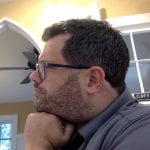 Brendan Green is Associate Professor of Political Science at the University of Cincinnati. He studies nuclear strategy, conventional forces, grand strategy, and U.S. foreign policy. Brendan’s writing has focused on, inter alia, the dynamics of nuclear weapons and arms races during the Cold War and today, especially in his book The Revolution that Failed: Nuclear Competition, Arms Control, and the Cold War (Cambridge: Cambridge University Press, 2020). He has published articles in The Journal of Strategic Studies, Security Studies, International Security, and other outlets for international affairs research and commentary; two of his academic articles have won awards from journals and professional associations. Brendan’s research has been funded by the Defense Threat Reduction Agency, the Smith Richardson Foundation, the Carnegie Corporation of New York, the Stanton Foundation, and the Charles Koch Foundation. Most recently, he has published with Caitlin Talmadge on the military value of Taiwan, in International Security and Foreign Affairs.
Brendan Green is Associate Professor of Political Science at the University of Cincinnati. He studies nuclear strategy, conventional forces, grand strategy, and U.S. foreign policy. Brendan’s writing has focused on, inter alia, the dynamics of nuclear weapons and arms races during the Cold War and today, especially in his book The Revolution that Failed: Nuclear Competition, Arms Control, and the Cold War (Cambridge: Cambridge University Press, 2020). He has published articles in The Journal of Strategic Studies, Security Studies, International Security, and other outlets for international affairs research and commentary; two of his academic articles have won awards from journals and professional associations. Brendan’s research has been funded by the Defense Threat Reduction Agency, the Smith Richardson Foundation, the Carnegie Corporation of New York, the Stanton Foundation, and the Charles Koch Foundation. Most recently, he has published with Caitlin Talmadge on the military value of Taiwan, in International Security and Foreign Affairs.
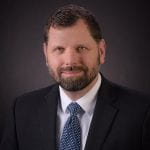 Phil Haun is a professor and Dean of Academics at the U.S. Naval War College and a research affiliate and visiting professor with MIT’s Security Studies Program. His areas of scholarly and professional expertise are coercion, deterrence, air power theory, strategy, international relations, and security studies. His books include Air Power in the Age of Primacy (Cambridge UP 2022), Lectures of the Air Corps Tactical School and American Strategic Bombing in World War II (UP Kentucky, 2019), Coercion, Survival, and War: Why Weak States Resist the United States (Stanford UP, 2015) and A-10s over Kosovo (Air University Press, 2003). His latest book Tactical Air Power and the Vietnam War: Explaining Effectiveness in Modern Air Warfare is forthcoming October 2023 with Cambridge University Press. He served in the U.S. Air Force as an A-10 pilot with combat tours in Iraq, Bosnia, Kosovo, and Afghanistan.
Phil Haun is a professor and Dean of Academics at the U.S. Naval War College and a research affiliate and visiting professor with MIT’s Security Studies Program. His areas of scholarly and professional expertise are coercion, deterrence, air power theory, strategy, international relations, and security studies. His books include Air Power in the Age of Primacy (Cambridge UP 2022), Lectures of the Air Corps Tactical School and American Strategic Bombing in World War II (UP Kentucky, 2019), Coercion, Survival, and War: Why Weak States Resist the United States (Stanford UP, 2015) and A-10s over Kosovo (Air University Press, 2003). His latest book Tactical Air Power and the Vietnam War: Explaining Effectiveness in Modern Air Warfare is forthcoming October 2023 with Cambridge University Press. He served in the U.S. Air Force as an A-10 pilot with combat tours in Iraq, Bosnia, Kosovo, and Afghanistan.
 Stephen Herzog is a senior researcher at the Center for Security Studies of ETH Zurich, the Swiss Federal Institute of Technology. He co–chairs the Beyond Nuclear Deterrence Working Group, a MacArthur Foundation and Harvard Kennedy School initiative. Stephen earned his Ph.D. in Political Science from Yale University in 2021 and was a Stanton Nuclear Security Fellow at Harvard’s Project on Managing the Atom. Prior to doctoral studies, he was a U.S. Department of Energy nuclear arms control official and a Federation of American Scientists research associate. His research is published in Contemporary Security Policy, Energy Research & Social Science, International Security, the Journal of Conflict Resolution, the Journal for Peace and Nuclear Disarmament, the Journal of Politics, the Nonproliferation Review, and Survival. He has written commentary for Arms Control Today, the Bulletin of the Atomic Scientists, the Financial Times, Science, The National Interest, War on the Rocks, and the Washington Post/Monkey Cage.
Stephen Herzog is a senior researcher at the Center for Security Studies of ETH Zurich, the Swiss Federal Institute of Technology. He co–chairs the Beyond Nuclear Deterrence Working Group, a MacArthur Foundation and Harvard Kennedy School initiative. Stephen earned his Ph.D. in Political Science from Yale University in 2021 and was a Stanton Nuclear Security Fellow at Harvard’s Project on Managing the Atom. Prior to doctoral studies, he was a U.S. Department of Energy nuclear arms control official and a Federation of American Scientists research associate. His research is published in Contemporary Security Policy, Energy Research & Social Science, International Security, the Journal of Conflict Resolution, the Journal for Peace and Nuclear Disarmament, the Journal of Politics, the Nonproliferation Review, and Survival. He has written commentary for Arms Control Today, the Bulletin of the Atomic Scientists, the Financial Times, Science, The National Interest, War on the Rocks, and the Washington Post/Monkey Cage.
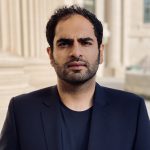 Fahd Humayun is an Assistant Professor & Neubauer Faculty Fellow at Tufts University’s Department of Political Science, where his research examines the relationship between political partisanship and interstate crisis behavior among nuclear–armed polities. He completed his PhD from Yale University in 2022 where his dissertation problematized theories of democratic accountability for foreign policy setbacks, which he argued did not fully account for the competitive dynamics of weakly–institutionalized regimes that experienced interstate crises. His job market paper, titled “The Punisher’s Dilemma: Domestic Opposition and Foreign Policy” was the winner of the International Studies Association’s Stephen P. Cohen Best Paper Award in 2022. His research is currently supported by the Stanton Foundation and has previously been supported by the MacMillan Center for International and Area Studies, the Yale South Asian Studies Council, International Security Studies at Yale, and the Institution for Social and Policy Studies.
Fahd Humayun is an Assistant Professor & Neubauer Faculty Fellow at Tufts University’s Department of Political Science, where his research examines the relationship between political partisanship and interstate crisis behavior among nuclear–armed polities. He completed his PhD from Yale University in 2022 where his dissertation problematized theories of democratic accountability for foreign policy setbacks, which he argued did not fully account for the competitive dynamics of weakly–institutionalized regimes that experienced interstate crises. His job market paper, titled “The Punisher’s Dilemma: Domestic Opposition and Foreign Policy” was the winner of the International Studies Association’s Stephen P. Cohen Best Paper Award in 2022. His research is currently supported by the Stanton Foundation and has previously been supported by the MacMillan Center for International and Area Studies, the Yale South Asian Studies Council, International Security Studies at Yale, and the Institution for Social and Policy Studies.
 Jiyoung Ko is an Assistant Professor of Political Science and International Relations at Korea University. Her research interests include nuclear proliferation, extended nuclear deterrence, alliance politics, public opinion, and nationalism. She was a U.S.–Korea NextGen Scholar (2018–2019) and a postdoctoral fellow at the Notre Dame International Security Center. She is part of the Beyond Nuclear Deterrence Working Group (2023–2024). Her work has appeared in International Studies Quarterly, Journal of Conflict Resolution, Journal of Peace Research, and Foreign Policy Analysis, and she is the author of Popular Nationalism War (Oxford University Press, July 2023). She is an organizer of the Pacific International Politics Conference (PIPC) Online Speaker Series. She received her B.A. and M.A. from Korea University and her Ph.D. in political science from Yale University.
Jiyoung Ko is an Assistant Professor of Political Science and International Relations at Korea University. Her research interests include nuclear proliferation, extended nuclear deterrence, alliance politics, public opinion, and nationalism. She was a U.S.–Korea NextGen Scholar (2018–2019) and a postdoctoral fellow at the Notre Dame International Security Center. She is part of the Beyond Nuclear Deterrence Working Group (2023–2024). Her work has appeared in International Studies Quarterly, Journal of Conflict Resolution, Journal of Peace Research, and Foreign Policy Analysis, and she is the author of Popular Nationalism War (Oxford University Press, July 2023). She is an organizer of the Pacific International Politics Conference (PIPC) Online Speaker Series. She received her B.A. and M.A. from Korea University and her Ph.D. in political science from Yale University.
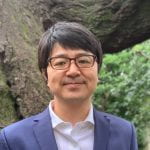 Shuhei Kurizaki is Associate Professor in the School of Political Science and Economics at Waseda University, Visiting Associate Professor at the National Institute of Informatics in Tokyo, Japan, and a nonresident scholar at the Ministry of Finance of Japan. Before joining the faculty at Waseda in 2013, he was a pre–doctoral fellow at Harvard University’s Olin Institute for Strategic Studies and assistant professor in the department of political science at Texas A&M University. His work has appeared in American Political Science Review and International Organization. His research interest includes diplomacy, nuclear deterrence, and economic statecraft. During 2021–2023, he is a visiting scholar at Stanford’s Center for International Security and Cooperation.
Shuhei Kurizaki is Associate Professor in the School of Political Science and Economics at Waseda University, Visiting Associate Professor at the National Institute of Informatics in Tokyo, Japan, and a nonresident scholar at the Ministry of Finance of Japan. Before joining the faculty at Waseda in 2013, he was a pre–doctoral fellow at Harvard University’s Olin Institute for Strategic Studies and assistant professor in the department of political science at Texas A&M University. His work has appeared in American Political Science Review and International Organization. His research interest includes diplomacy, nuclear deterrence, and economic statecraft. During 2021–2023, he is a visiting scholar at Stanford’s Center for International Security and Cooperation.
 Jeffrey Lewis holds a dual appointment as a Professor at the Middlebury Institute of International Studies at Monterey (MIIS) and a scholar at the Institute’s James Martin Center for Nonproliferation Studies (CNS). Dr. Lewis is also a member of the State Department’s International Security Advisory Board. Dr. Lewis received a B.A. in Philosophy and Political Science from Augustana College and a Ph.D. in Policy Studies from the University of Maryland.
Jeffrey Lewis holds a dual appointment as a Professor at the Middlebury Institute of International Studies at Monterey (MIIS) and a scholar at the Institute’s James Martin Center for Nonproliferation Studies (CNS). Dr. Lewis is also a member of the State Department’s International Security Advisory Board. Dr. Lewis received a B.A. in Philosophy and Political Science from Augustana College and a Ph.D. in Policy Studies from the University of Maryland.
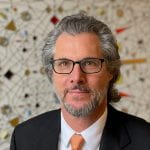 Keir Lieber is a Professor in Georgetown University’s School of Foreign Service and Department of Government. He served as Director of the Security Studies Program from 2018–2022. He received his Ph.D. and M.A. in political science from the University of Chicago, and his B.A. in political science and international relations from the University of Wisconsin–Madison. Lieber’s research and teaching interests include nuclear weapons, deterrence, and strategy; technology and the causes of war; U.S. national security policy; and international relations theory. He is co– author (with Daryl Press) of The Myth of the Nuclear Revolution: Power Politics in the Atomic Age (Cornell University Press, 2020); author of War and the Engineers: The Primacy of Politics over Technology (Cornell University Press, 2005); and editor of War, Peace, and International Political Realism (University of Notre Dame Press, 2009). His articles have appeared in leading scholarly and foreign policy publications, including International Security, Security Studies, Foreign Affairs, and the Atlantic Monthly. He has been awarded major fellowships from the Brookings Institution, Carnegie Corporation of New York, Council on Foreign Relations, and Smith Richardson Foundation.
Keir Lieber is a Professor in Georgetown University’s School of Foreign Service and Department of Government. He served as Director of the Security Studies Program from 2018–2022. He received his Ph.D. and M.A. in political science from the University of Chicago, and his B.A. in political science and international relations from the University of Wisconsin–Madison. Lieber’s research and teaching interests include nuclear weapons, deterrence, and strategy; technology and the causes of war; U.S. national security policy; and international relations theory. He is co– author (with Daryl Press) of The Myth of the Nuclear Revolution: Power Politics in the Atomic Age (Cornell University Press, 2020); author of War and the Engineers: The Primacy of Politics over Technology (Cornell University Press, 2005); and editor of War, Peace, and International Political Realism (University of Notre Dame Press, 2009). His articles have appeared in leading scholarly and foreign policy publications, including International Security, Security Studies, Foreign Affairs, and the Atlantic Monthly. He has been awarded major fellowships from the Brookings Institution, Carnegie Corporation of New York, Council on Foreign Relations, and Smith Richardson Foundation.
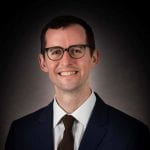 David C. Logan is an Assistant Professor in National Security Affairs at the U.S. Naval War College. His research focuses on nuclear weapons, arms control, deterrence, and the U.S.–China security relationship. He has published in International Security, The Journal of Strategic Studies, The Nonproliferation Review, Foreign Affairs, The Los Angeles Times, and War On the Rocks, among other venues. He has conducted research for the Center for the Study of Chinese Military Affairs at National Defense University, the Defense Threat Reduction Agency, and the Office of Net Assessment. He received his Ph.D. from Princeton University and has served as a Fellow with the Princeton Center for International Security Studies and a Stanton Nuclear Security Fellow with the MIT Security Studies Program.
David C. Logan is an Assistant Professor in National Security Affairs at the U.S. Naval War College. His research focuses on nuclear weapons, arms control, deterrence, and the U.S.–China security relationship. He has published in International Security, The Journal of Strategic Studies, The Nonproliferation Review, Foreign Affairs, The Los Angeles Times, and War On the Rocks, among other venues. He has conducted research for the Center for the Study of Chinese Military Affairs at National Defense University, the Defense Threat Reduction Agency, and the Office of Net Assessment. He received his Ph.D. from Princeton University and has served as a Fellow with the Princeton Center for International Security Studies and a Stanton Nuclear Security Fellow with the MIT Security Studies Program.
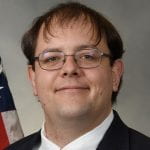 John D. Maurer is an assistant professor of strategy and security studies at the School of Advanced Air and Space Studies (SAASS) at Air University. He is also a nonresident fellow at the American Enterprise Institute. His research focuses on the history of American nuclear strategy and arms control policy in the Cold War, with an eye towards contemporary applications in a world of renewed strategic competition. His book Competitive Arms Control: Nixon, Kissinger, and SALT, 1969–1972 was published by Yale University Press in 2022. His research has been published in Diplomatic History, Texas National Security Review, RealClearDefense, and War on the Rocks. He holds a B.S. in international affairs and a Ph.D. in the history of American foreign relations from Georgetown University.
John D. Maurer is an assistant professor of strategy and security studies at the School of Advanced Air and Space Studies (SAASS) at Air University. He is also a nonresident fellow at the American Enterprise Institute. His research focuses on the history of American nuclear strategy and arms control policy in the Cold War, with an eye towards contemporary applications in a world of renewed strategic competition. His book Competitive Arms Control: Nixon, Kissinger, and SALT, 1969–1972 was published by Yale University Press in 2022. His research has been published in Diplomatic History, Texas National Security Review, RealClearDefense, and War on the Rocks. He holds a B.S. in international affairs and a Ph.D. in the history of American foreign relations from Georgetown University.
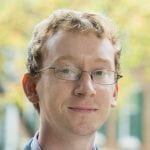 Nicholas L. Miller is an Associate Professor in the Department of Government at Dartmouth College. Miller’s research focuses primarily on the causes and consequences of nuclear weapons proliferation. His book, Stopping the Bomb: The Sources and Effectiveness of U.S. Nonproliferation Policy, was published by Cornell University Press in 2018. His work has also been published in a wide variety of scholarly journals, including the American Political Science Review, International Organization, International Security, Security Studies, The Journal of Conflict Resolution, and International Studies Quarterly. Nicholas is currently working on a book project that analyzes how the United States responds to emerging nuclear powers. He earned his Ph.D. in Political Science from MIT in 2014.
Nicholas L. Miller is an Associate Professor in the Department of Government at Dartmouth College. Miller’s research focuses primarily on the causes and consequences of nuclear weapons proliferation. His book, Stopping the Bomb: The Sources and Effectiveness of U.S. Nonproliferation Policy, was published by Cornell University Press in 2018. His work has also been published in a wide variety of scholarly journals, including the American Political Science Review, International Organization, International Security, Security Studies, The Journal of Conflict Resolution, and International Studies Quarterly. Nicholas is currently working on a book project that analyzes how the United States responds to emerging nuclear powers. He earned his Ph.D. in Political Science from MIT in 2014.
 Reid Pauly is an Assistant Professor of Political Science at Brown University and the Dean’s Assistant Professor of Nuclear Security and Policy at the Watson Institute for International and Public Affairs. He studies nuclear proliferation and strategy, coercion, and secrecy in international politics. His scholarship has been published in International Security, International Studies Quarterly, the European Journal of International Relations, and the Nonproliferation Review. Pauly earned his Ph.D. from MIT and has held fellowships at the Belfer Center (Harvard Kennedy School) and the Center for International Security and Cooperation (Stanford). He is also a fellow with the Schmidt Futures International Strategy Forum.
Reid Pauly is an Assistant Professor of Political Science at Brown University and the Dean’s Assistant Professor of Nuclear Security and Policy at the Watson Institute for International and Public Affairs. He studies nuclear proliferation and strategy, coercion, and secrecy in international politics. His scholarship has been published in International Security, International Studies Quarterly, the European Journal of International Relations, and the Nonproliferation Review. Pauly earned his Ph.D. from MIT and has held fellowships at the Belfer Center (Harvard Kennedy School) and the Center for International Security and Cooperation (Stanford). He is also a fellow with the Schmidt Futures International Strategy Forum.
 Or (Ori) Rabinowitz, (PhD), a Chevening scholar, is an associate professor at the International Relations Department of the Hebrew University of Jerusalem, Israel. During the academic year of 2022–2023 she will hold the post of visiting associate professor at Stanford’s CISAC. Her research interests include nuclear proliferation, intelligence studies, and Israeli American relations. Her book, Bargaining on Nuclear Tests was published in April 2014 by Oxford University Press. Her studies were published leading academic journals, including International Security, Journal of Strategic Studies, and International History Review, as well as op–eds and blog posts in the Washington Post, Foreign Policy and Ha’aretz. She holds a PhD degree awarded by the War Studies Department of King’s College London, an MA degree in Security Studies and an LLB degree in Law, both from Tel–Aviv University. She was awarded numerous awards and grants, including two personal research grants by the Israeli Science Foundation and in 2020 was a member of the Young Academic forum of the Israeli Academy for Sciences and Humanities.
Or (Ori) Rabinowitz, (PhD), a Chevening scholar, is an associate professor at the International Relations Department of the Hebrew University of Jerusalem, Israel. During the academic year of 2022–2023 she will hold the post of visiting associate professor at Stanford’s CISAC. Her research interests include nuclear proliferation, intelligence studies, and Israeli American relations. Her book, Bargaining on Nuclear Tests was published in April 2014 by Oxford University Press. Her studies were published leading academic journals, including International Security, Journal of Strategic Studies, and International History Review, as well as op–eds and blog posts in the Washington Post, Foreign Policy and Ha’aretz. She holds a PhD degree awarded by the War Studies Department of King’s College London, an MA degree in Security Studies and an LLB degree in Law, both from Tel–Aviv University. She was awarded numerous awards and grants, including two personal research grants by the Israeli Science Foundation and in 2020 was a member of the Young Academic forum of the Israeli Academy for Sciences and Humanities.
 Todd S. Sechser (Ph.D., Stanford University) is the Pamela Feinour Edmonds and Franklin S. Edmonds, Jr. Discovery Professor of Politics and Public Policy at the University of Virginia and a nonresident scholar at the Carnegie Endowment for International Peace. His research interests include coercive diplomacy, nuclear security, political violence, and foreign policy. He is coauthor of Nuclear Weapons and Coercive Diplomacy and coeditor of the book Emerging Technologies and International Stability. His research has appeared in academic journals such as International Organization, the American Journal of Political Science, International Studies Quarterly, the Journal of Conflict Resolution, the Journal of Strategic Studies, and the Non–Proliferation Review. His writing on foreign policy issues has appeared in the Washington Post, Wall Street Journal, Boston Globe, the Christian Science Monitor, and other media. Sechser is also a faculty senior fellow at the Miller Center at the University of Virginia, and was previously a Stanton Nuclear Security Fellow at the Council on Foreign Relations and a John M. Olin National Security Fellow at Harvard University.
Todd S. Sechser (Ph.D., Stanford University) is the Pamela Feinour Edmonds and Franklin S. Edmonds, Jr. Discovery Professor of Politics and Public Policy at the University of Virginia and a nonresident scholar at the Carnegie Endowment for International Peace. His research interests include coercive diplomacy, nuclear security, political violence, and foreign policy. He is coauthor of Nuclear Weapons and Coercive Diplomacy and coeditor of the book Emerging Technologies and International Stability. His research has appeared in academic journals such as International Organization, the American Journal of Political Science, International Studies Quarterly, the Journal of Conflict Resolution, the Journal of Strategic Studies, and the Non–Proliferation Review. His writing on foreign policy issues has appeared in the Washington Post, Wall Street Journal, Boston Globe, the Christian Science Monitor, and other media. Sechser is also a faculty senior fellow at the Miller Center at the University of Virginia, and was previously a Stanton Nuclear Security Fellow at the Council on Foreign Relations and a John M. Olin National Security Fellow at Harvard University.
 Etel Solingen is Distinguished Professor and the Thomas T. and Elizabeth C. Tierney Chair in Peace and Conflict Studies at the University of California Irvine. She was president of the International Studies Association and received a William and Katherine Estes Award from the National Academy of Sciences, a MacArthur Foundation Peace and International Cooperation award, ISA Distinguished Scholar in International Security, Susan Strange Professorship (London School of Economics), Richard Holbrooke Prize (American Academy in Berlin), SSRC–Mac Arthur Foundation Fellowship on Peace and Security, Japan Foundation–SSRC Abe Fellowship, and APSA Excellence in Mentorship, among others. Her book Nuclear Logics: Contrasting Paths in East Asia and the Middle East (Princeton UP) won the APSA’s best book award and the ISA’s Jervis and Schroeder Award. Other books include Geopolitics, Supply Chains and International Relations of East Asia (Cambridge UP); Regional Orders at Century’s Dawn (Princeton UP); Sanctions, Statecraft, and Nuclear Proliferation (Cambridge UP); Industrial Policy, Technology, and International Bargaining (Stanford UP); Scientists and the State: Domestic Structures and the International Context (U. of Michigan), and Comparative Regionalism (Routledge).
Etel Solingen is Distinguished Professor and the Thomas T. and Elizabeth C. Tierney Chair in Peace and Conflict Studies at the University of California Irvine. She was president of the International Studies Association and received a William and Katherine Estes Award from the National Academy of Sciences, a MacArthur Foundation Peace and International Cooperation award, ISA Distinguished Scholar in International Security, Susan Strange Professorship (London School of Economics), Richard Holbrooke Prize (American Academy in Berlin), SSRC–Mac Arthur Foundation Fellowship on Peace and Security, Japan Foundation–SSRC Abe Fellowship, and APSA Excellence in Mentorship, among others. Her book Nuclear Logics: Contrasting Paths in East Asia and the Middle East (Princeton UP) won the APSA’s best book award and the ISA’s Jervis and Schroeder Award. Other books include Geopolitics, Supply Chains and International Relations of East Asia (Cambridge UP); Regional Orders at Century’s Dawn (Princeton UP); Sanctions, Statecraft, and Nuclear Proliferation (Cambridge UP); Industrial Policy, Technology, and International Bargaining (Stanford UP); Scientists and the State: Domestic Structures and the International Context (U. of Michigan), and Comparative Regionalism (Routledge).
 Jane Vaynman is a Senior Advisor in the Bureau of Arms Control, Verification and Compliance at the U.S. Department of State. She is on leave from her academic position as an Assistant Professor of Political Science at Temple University. Vaynman’s research focuses on security cooperation between adversarial states, the design of arms control agreements, and the effects of emerging technology on international institutions. From 2021-2022 she was the Lightening Scholar at Perry World House at the University of Pennsylvania. She has previously held positions at the Institute for Security and Conflict Studies at the Elliott School of International Affairs, the Council on Foreign Relations, and the Carnegie Endowment for International Peace. She received her PhD in Government from Harvard University.
Jane Vaynman is a Senior Advisor in the Bureau of Arms Control, Verification and Compliance at the U.S. Department of State. She is on leave from her academic position as an Assistant Professor of Political Science at Temple University. Vaynman’s research focuses on security cooperation between adversarial states, the design of arms control agreements, and the effects of emerging technology on international institutions. From 2021-2022 she was the Lightening Scholar at Perry World House at the University of Pennsylvania. She has previously held positions at the Institute for Security and Conflict Studies at the Elliott School of International Affairs, the Council on Foreign Relations, and the Carnegie Endowment for International Peace. She received her PhD in Government from Harvard University.
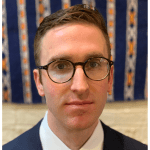 Tristan A. Volpe is an assistant professor in the Defense Analysis Department at the Naval Postgraduate School. He is also a nonresident fellow in the Nuclear Policy Program at the Carnegie Endowment for International Peace. His book, Leveraging Latency: How the Weak Compel the Strong with Nuclear Technology, was published with Oxford University Press in 2023. He lives on the Monterey Peninsula in California.
Tristan A. Volpe is an assistant professor in the Defense Analysis Department at the Naval Postgraduate School. He is also a nonresident fellow in the Nuclear Policy Program at the Carnegie Endowment for International Peace. His book, Leveraging Latency: How the Weak Compel the Strong with Nuclear Technology, was published with Oxford University Press in 2023. He lives on the Monterey Peninsula in California.
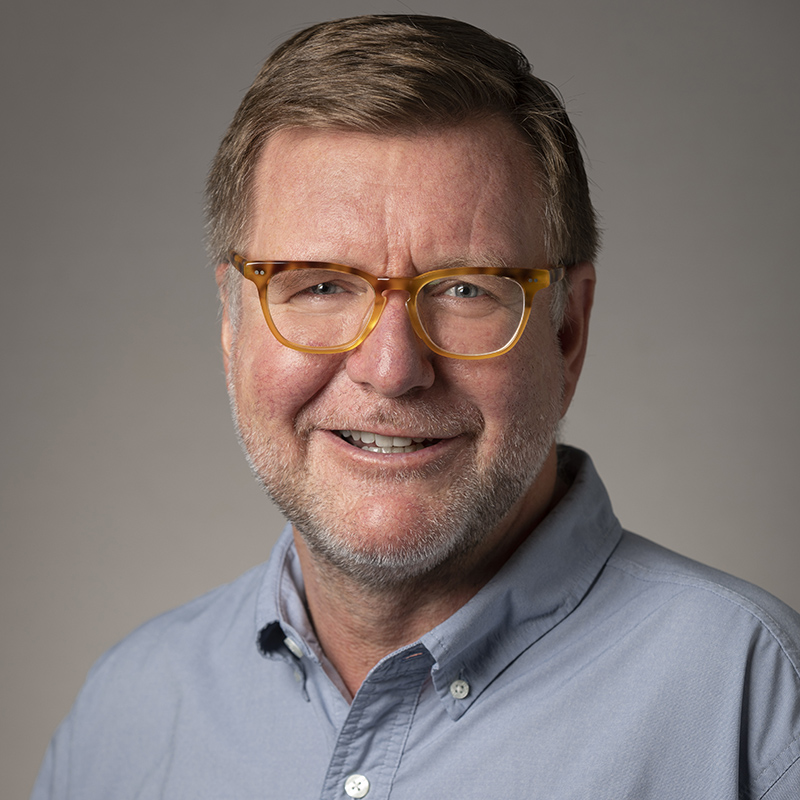 Odd Arne Westad is Elihu Professor of History and Global Affairs at Yale University and the Director of International Security Studies. He is a scholar of modern international and global history, with a specialization in the history of eastern Asia since the 18th century. Westad has published 16 books, most of which deal with twentieth century Asian and global history. In the first part of his career, Westad was mainly preoccupied with the history of the Cold War, China-Russia relations, and the history of the Chinese civil war and the Chinese Communist Party. Since the mid-2000s, Westad has been concerned with more general aspects of post-colonial and global history, as well as the modern history of China. The three key works from this period are The Global Cold War, which argues for ways of understanding the Soviet-American conflict in light of late- and post-colonial change in Asia, Africa, and the Caribbean; Restless Empire, which discusses broad trends in China’s international history since 1750; and The Cold War: A World History, which summarizes the origins, conduct, and results of the conflict on a global scale. Today Westad is mainly interested in researching histories of empire and imperialism, first and foremost in Asia, but also world-wide.
Odd Arne Westad is Elihu Professor of History and Global Affairs at Yale University and the Director of International Security Studies. He is a scholar of modern international and global history, with a specialization in the history of eastern Asia since the 18th century. Westad has published 16 books, most of which deal with twentieth century Asian and global history. In the first part of his career, Westad was mainly preoccupied with the history of the Cold War, China-Russia relations, and the history of the Chinese civil war and the Chinese Communist Party. Since the mid-2000s, Westad has been concerned with more general aspects of post-colonial and global history, as well as the modern history of China. The three key works from this period are The Global Cold War, which argues for ways of understanding the Soviet-American conflict in light of late- and post-colonial change in Asia, Africa, and the Caribbean; Restless Empire, which discusses broad trends in China’s international history since 1750; and The Cold War: A World History, which summarizes the origins, conduct, and results of the conflict on a global scale. Today Westad is mainly interested in researching histories of empire and imperialism, first and foremost in Asia, but also world-wide.
 Heather Williams is the director of the Project on Nuclear Issues and a senior fellow in the International Security Program at the Center for Strategic and International Studies (CSIS). She is also an associate fellow with the Project on Managing the Atom in the Belfer Center for Science and International Affairs at the Harvard Kennedy School. Before joining CSIS she was a visiting fellow with the Project on Managing the Atom and a Stanton Nuclear Security fellow in the Security Studies Program at MIT. Until 2022, she was a senior lecturer (associate professor) in defense studies at King’s College London and taught on arms control, deterrence, and disarmament. From 2018 to 2019, Dr. Williams served as a specialist adviser to the House of Lords International Relations Committee inquiry into the Nuclear Non–Proliferation Treaty and disarmament, and until 2015 she was a research fellow at Chatham House. She previously worked in the Strategy, Forces, and Resources Division at the Institute for Defense Analyses, where she remains an adjunct research staff member. She is an associate fellow at the Royal United Services Institute RUSI), a senior associate fellow with the European Leadership Network, and a member of the Wilton Park Advisory Council. Dr. Williams has a PhD in war studies from King’s College London, an MA in security policy studies from the George Washington University, and a BA in international relations and Russian studies from Boston University.
Heather Williams is the director of the Project on Nuclear Issues and a senior fellow in the International Security Program at the Center for Strategic and International Studies (CSIS). She is also an associate fellow with the Project on Managing the Atom in the Belfer Center for Science and International Affairs at the Harvard Kennedy School. Before joining CSIS she was a visiting fellow with the Project on Managing the Atom and a Stanton Nuclear Security fellow in the Security Studies Program at MIT. Until 2022, she was a senior lecturer (associate professor) in defense studies at King’s College London and taught on arms control, deterrence, and disarmament. From 2018 to 2019, Dr. Williams served as a specialist adviser to the House of Lords International Relations Committee inquiry into the Nuclear Non–Proliferation Treaty and disarmament, and until 2015 she was a research fellow at Chatham House. She previously worked in the Strategy, Forces, and Resources Division at the Institute for Defense Analyses, where she remains an adjunct research staff member. She is an associate fellow at the Royal United Services Institute RUSI), a senior associate fellow with the European Leadership Network, and a member of the Wilton Park Advisory Council. Dr. Williams has a PhD in war studies from King’s College London, an MA in security policy studies from the George Washington University, and a BA in international relations and Russian studies from Boston University.
